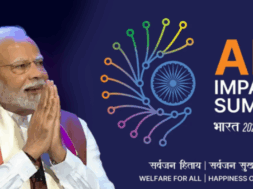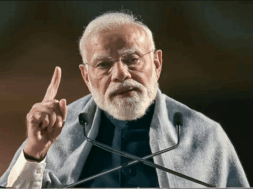
Manas Dasgupta
NEW DELHI, Feb 16: The centre is keen to shift 40 per cent of the wage bills under the Mahatma Gandhi National Rural Employment Guarantee Scheme (MGNREGS) to the beneficiary states instead of New Delhi bearing the cent per cent burden.
According to the Union Rural Development minister Giriraj Singh, MGNREGS should not be treated as a regular employment scheme, as it is only meant to be a fall-back mechanism for those who can’t find employment anywhere else. Only if the financial burden of the scheme was also shared by the concerned state governments, they would become more proactive in controlling corruption, he believed.
The government’s stand on sharing the financial burden and its recent orders that all the payments under the scheme must only be made to the Aadhaar card-linked bank accounts, explained why the centre in the next year’s budget imposed a 33 per cent cut on the MGNREGS outlay. The rural employment union leaders said the decision to channelize all the payments only through the Aadhaar-linked account would automatically eliminate 57 per cent of the current workers who were paid through the workers’ bank account directly.
“The financial burden of wages to the beneficiaries of the MGNREGS should also be shouldered by State governments, in order to make them more proactive in controlling corruption,” Singh said on Thursday. Going a step further, he remarked, “I believe that we should go to Parliament to amend the MGNREGA law to change the contribution [pattern] to a 60-40 [split between the Centre and the States], instead of the Centre bearing 100% of the wage bill. When the States partially bear the burden, they will be more vigilant regarding corruption.”
So far, under the Act, the Centre bear cent per cent burden of employment guarantee schemes which are directly paid to the workers’ accounts and must be transferred within 15 days of them completing their work. On January 30, the Ministry issued an order tweaking the mode of wage payments, with effect from February 1.
Until now, the MGNREGA system allowed two modes of wage payment: “account-based” or “Aadhaar-based”. The former is a plain bank transfer. The latter uses Aadhaar as a financial address and sends money to the person’s “last Aadhaar-linked account”. In its circular, the ministry argued that the switch to Aadhaar-based payments only is being done to “ensure effective implementation” of the programme and transparency.
The academics and activists working under the umbrella body of NREGA Sangharsh Morcha expressed alarm over his Ministry’s latest order, which makes Aadhaar-based payment for wages mandatory. According to the ministry’s own data, this will exclude 57% of the active workers. Speaking on the sidelines of ongoing 100-day dharna by MGNREGA workers at the Jantar Mantar in Delhi, demanding that the government withdraw the mobile phone application-based attendance capturing system, the leaders expressed the apprehension that the 57 per cent of the workers would not be able to find a job under the scheme till the “cumbersome process” of linking bank account with the Aadhaar card was completed. Addressing a press conference under the banner of the NREGA Sangharsh Morcha, activists Nikhil Dey, Yogendra Yadav and Jean Dreze said the move was disastrous and would deal a body blow to the programme.
“For the Aadhaar-based option to work, not only must the worker’s job card and bank account be seeded with Aadhaar, the account also has to be connected to the National Payments Corporation of India. This connection, known as mapping, can be very cumbersome, because it requires meeting stringent KYC [Know Your Customer] requirements, resolving possible inconsistencies between the Aadhaar database and the bank account,” Mr. Dreze, who joined the meeting via video conferencing from Jharkhand, explained.
Because of the complicated nature of this process, only 43% of active MGNREGA workers currently use Aadhaar-based payments, according to the Ministry’s own records, despite a relentless push from the government. “By this order, the government, in effect, is saying that 57% of the workers won’t be paid,” Mr. Dey said.
This added hurdle, along with the mandate to capture attendance data via a mobile-based app which the workers are having trouble navigating, will automatically depress the demand for work under the scheme, he said. It could take anywhere from several weeks to several months for the workers to comply with the new rule because of the elaborate paperwork, Mr. Dey added.
Mr. Yadav said the two measures — Aadhaar-based payments and capturing attendance data through a mobile application — have to be seen in the context of the drastic cut in the Union Budget’s allocations for the scheme. “We no longer need to speculate on why was the Budget so drastically cut. The government knew very well what it was doing. By adding so many filters, it artificially wants to bring the demand down and thus lower expenditure,” Mr. Yadav said.














